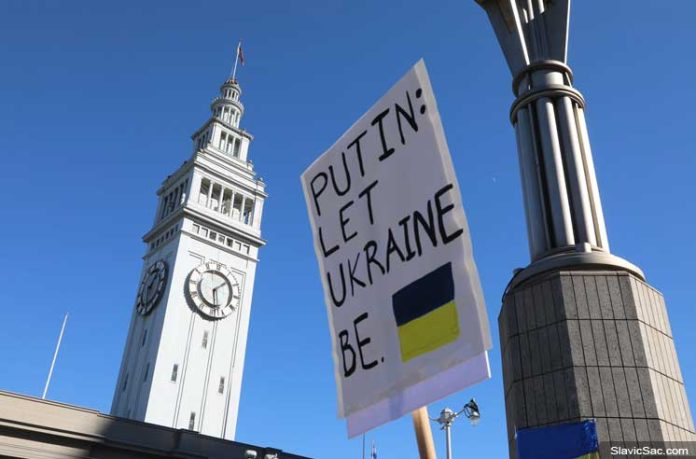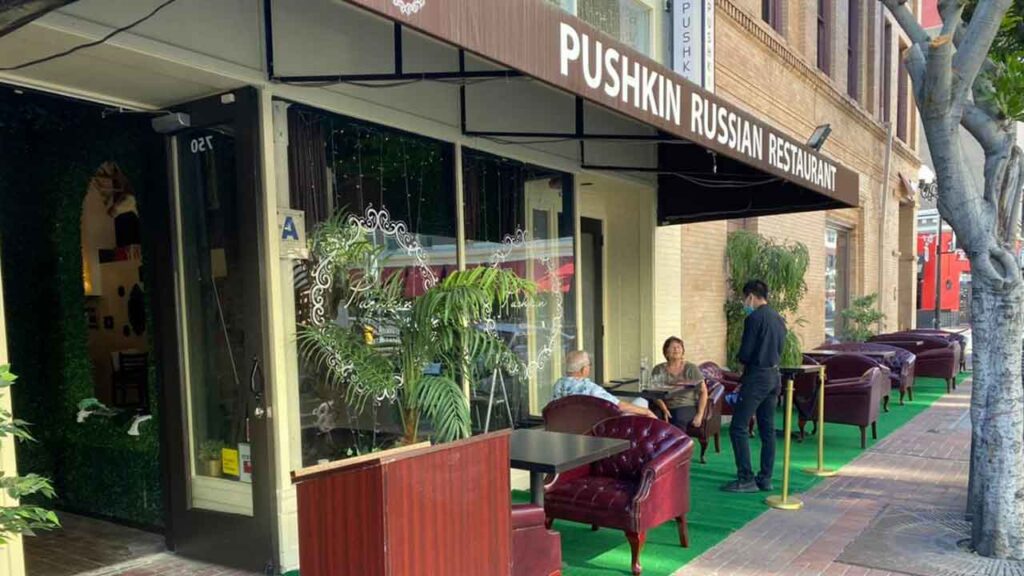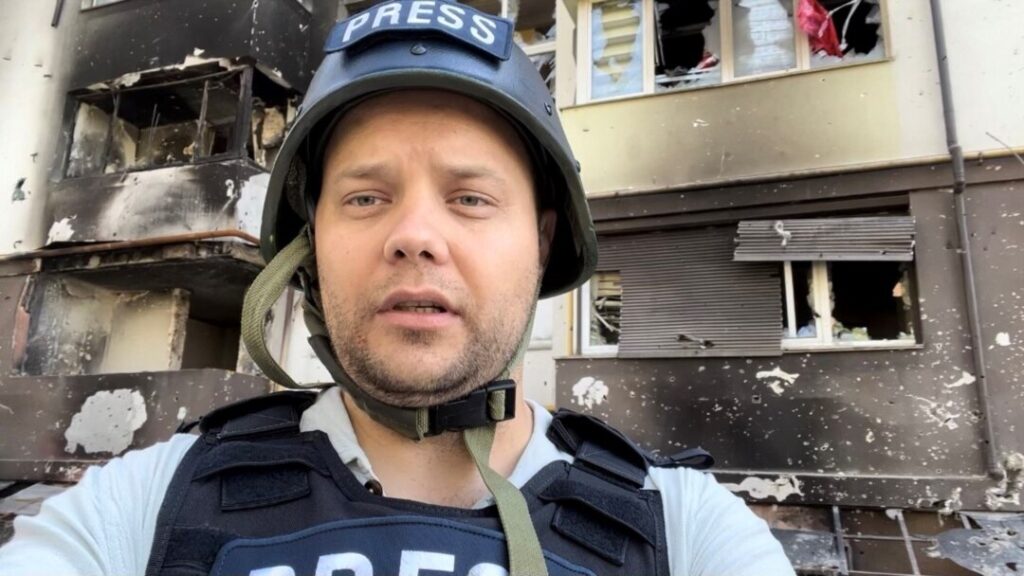With the start of the Russian Federation’s full-scale war in Ukraine, crowds of refugees began to arrive in the European Union, Canada, and the United States. Almost immediately after Russian invasion in February 2022, U.S. President Joe Biden announced the provision of temporary asylum to 100,000 Ukrainians. Over 270,000 Ukrainians have entered this country since then, almost 130,000 of which were admitted under the Uniting for Ukraine (U4U) program. Over 200,000 Americans have sponsored Ukrainian citizens, according to the Department of Homeland Security (DHS), which manages this program.
However, the war in Ukraine did not start in February 2022 when it finally involved the entire territory of Ukraine. The conflict has actually been ongoing for nine years: Russia attacked Ukraine in the winter of 2014, annexing Crimea and creating a tense situation in the eastern part of the country. Since then, the military conflict has smoldered.
According to the US Census Bureau, over fifty thousand immigrants from Russia and Ukraine live in the Sacramento, California region. The number is distributed almost equally among those ethnic groups.
In 2014, at the very beginning of the conflict in Ukraine, Scott Jones, then acting Sacramento County Sheriff, gathered representatives of the Russian and Ukrainian churches within his jurisdiction and announced that he would not tolerate spillover of the conflict onto American soil. By this time, skirmishes based on national identity had become more frequent among Slavic immigrants: fierce disputes and fighting were reported, and one person even lost his life.
“The concerns were that there’s been a lot of heated words, a lot of angry words, a lot of words that seem to maybe encourage violence, and nothing’s risen to that level yet, but it is kind of a proactive step to try to get a consistent message between law enforcement and the community, to try to embrace our differences and debates…and dialog about the issues but recognize, at the end of the day, the best way to honor the Ukraine or Russia, families, and relatives they still have back there is to do so peacefully and with respect for others,” Jones said [page 122].
At the meeting, Nikolay Bugriyev, a Russian pastor and president of the Pacific Coast Slavic Baptist Association, spoke about hateful speech examples, such as a woman who told a local television station she hated Russians.
Jones responded that while “it’s ignorant to generalize in any fashion, it’s not a crime until you take action or incite people to violence.”
Sheriff Scott Jones ran for a U.S. Congress seat twice, both times losing his bid to represent Californians on Capitol Hill in Washington.
“I was kind of being racist.”
Just a couple of years after the Sheriff’s meeting in Sacramento, a young Belarusian immigrant who worked as a tennis coach in the San Francisco Bay Area, Oleg Talamai, was killed in an ethnically motivated brawl. One witness to this tragic Palo Alto crime reported that the reason for the murder was that Talamai was speaking Russian.
Reports indicate that on the eve of Christmas 2014 (during the outbreak of the war in Ukraine), a group of young people were drinking at a bar in Palo Alto. Among those present were several Russian-speaking individuals, one of whom was Talamai. After his arrest, the perpetrator, Neil Brian Rotroff, admitted to the police that he had insulted his opponent before the fight.
“I was kind of being racist,” Rotroff confessed to the detectives. However, according to Rotroff, his violent actions were provoked by the deceased individual himself.
“He told me that he couldn’t understand the victim because the latter was speaking Russian, and he [Rotroff] knew for sure that he was being insulted,” reported Palo Alto Police detective E. Bulatao.
Another witness also confirmed that the conflict arose because some members of the group were speaking Russian. In particular, one was asked, “Why is he speaking Russian, considering he was born in Ukraine?”
In the end, Rotroff was charged with involuntary manslaughter and sentenced to just one year in county jail, along with community service and restitution payments. His friend, Akshay Vijay Mastakar, was charged with attempting to assault a police officer during their arrest. Mastakar accepted a plea deal, and some of the charges against him were dropped; nevertheless, he faced a punishment of sixty hours of community service.
Situation outside of California
Slavic Sacramento recently reported on a tense situation in Washington state’s Slavic community, where a Russian immigrant attempted to express her patriotic feelings by posting a pro-Russia statement on the garage door of her family’s house, praising the Wagner Group for helping the Russian Federation in its invasion of Ukraine. According to the home’s owner, members of the Ukrainian diaspora repeatedly attacked his property, vandalizing his territory and threatening to destroy his business.
The U.S. government has designated the Wagner Group a “significant transnational criminal organization,” and the Organization for Security and Co-operation in Europe (OSCE) recognizes it as a terrorist organization.
Slavic Sacramento received an audio recording of one local resident’s contact with the police, requesting an officer to “deal with the situation.” The caller was worried and expressed concern that the tension in the community would not subside as long as the statement continued to disturb neighbors. However, the dispatcher advised the worrying citizen not to escalate the situation.
“You can peacefully protest. However, according to the Constitution, this owner has the right to express his own opinion,” the dispatcher responded.
“You are fascists! You don’t belong in America! Leave for Russia!” These were some of the insults hurled by indignant neighbors at the Russian immigrants for expressing their personal views on their own garage door.
Despite removing the provocative statement, the homeowners still faced serious confrontation from Ukrainian immigrants. In particular, their garage door was spray painted yellow and blue, the house was targeted with raw eggs, and a family Volkswagen parked near the garage was dented, the wheels were punctured, and paint was poured over it.
As a result, the Russian immigrants now live “in fear, as the crowd of masked men threatening them has reached twenty to thirty people,” a police report stated.
This incident is currently being investigated by the local police; however, no official statements on a hate crime have been made.
Language battles in social networks
After a serious aggravation of the military conflict in Ukraine, hundreds of internally displaced people from across the ocean are now flocking to Sacramento, which is second only to Seattle in terms of the number of refugees received from that war. Local churches are experiencing a real boom, and the community is growing rapidly, along with Russian- and Ukrainian-speaking groups on Facebook.
The Slavic Sacramento Facebook group page has tripled its followers in just a year. The page gains daily subscribers from the Sacramento region looking for work, housing, life hacks about everyday life in the US, and opportunities to connect with each other. One follower recently posted a thoughtful inquiry (originally written in Ukrainian):
“I have a question: why should the Russian-speaking population of Sacramento take part in Slavic Sacramento? The Slavs are the Poles, Slovaks, Belarusians, Ukrainians! Are we forced to learn Russian here in order to become ‘ours’??? It’s known that Russia is a multinational state in which there are significantly more non-Slavs than Slavs! Isn’t it? Why should the language of the aggressor unite real Slavs today?”
In the thread under this post, a heated discussion broke out about Russian language use in the United States. Some commentators claimed that, in their opinion, the Russian language is “the language of the aggressor and occupier, the Russian Federation,” while others defended their right to communicate in their native language whilst in the United States.
“You don’t need to impose your language on anyone here, and if you are in America learn English or Spanish and communicate with the Russians as much as you want. And yes, if you are a true patriot of your country, be so, don’t you get all mushy and sweet here and don’t engage in racism and discrimination,” one user named Valentina responded to the author of the initial post.
“Here in California, Russian is not the language of the aggressor. This is a binding language, the language of communication among people from the former USSR. Here, Russian speakers include Russians and Ukrainians, Armenians, Kyrgyz, Belarusians, Moldavians, Gagauz, as well as many Poles, Romanians, Bulgarians, Serbs, and even Mongols. Exactly the same as Spanish and Portuguese, Chinese,” commented Vladimir Gnedash from Sacramento. “In the States there are several settlements where Russian is considered the main language. Those are people, descendants of the very first emigrants who settled here and created those communities. And try to explain to them that their mother tongue is the language of the aggressor. They are the third generation born in the USA. Here in Sacramento, I know several such people. And, I’ve been to one of those towns in Oregon.”
Authorities on hate incidents among Slavic immigrants
Despite the fierce war between Russia and Ukraine ongoing for more than a year and a half, emotions on both sides remain heated. Russian aviation attacks are destroying cultural monuments in Ukraine, and voices in favor of a ban on the Russian language are heard more and more insistently in Kyiv.
These trends are acutely perceived here in the United States, where between five and seven million native Russian speakers live. Among them are immigrants from Russia, Ukraine, Belarus, Kazakhstan, Uzbekistan, Lithuania, Latvia, and other countries that were once part of the USSR, where Russian was the official language and the state’s means of communication.
Today, millions of Eastern Europeans live and raise their families in the United States. According to the US Census Bureau, in 2019, about a million people claimed that they communicate in Russian. Ukrainian (among other Slavic languages) is used by 320,000 US residents. Moreover, as noted in a study by the US government (Language Use in the United States: 2019), the number of users of Russian and other Slavic languages in this country is growing rapidly.
As for Sacramento, according to District Attorney Shelly Orio, no racially motivated offenses against Slavic residents have been reported in 2023.
“We have not had any law enforcement reports to our office to prosecute hate crimes for crimes against victims in the category you listed this year,” Orio told Slavic Sacramento.
It is worth noting that the California Department of Justice has issued hate crime brochures with information on how to identify and report hate crimes and the services available to victims of hate crimes in twenty-four languages, including Russian, Ukrainian, and Armenian .
Slavic Sacramento has requested information on hate crimes from the US Department of Justice, and their response is as follows:
“The Justice Department does not collect disaggregated data on hate crimes impacting Eastern-European Americans (Russians, Ukrainians, or other Slavic people) at the state or federal level.”
It is noteworthy that recently in California, there is a government program called Stop the Hate, the main goal of which is to assist victims of hate attacks and prevent them. All victims and witnesses of hate incidents and hate crimes can report and are eligible for free hotline support services. California vs Hate is not affiliated with law enforcement, and you can report anonymously.
Any victim of or witness to a hate incident or crime in California can report it and receive support any time using the link above. You can also call 833-8-NO-HATE; (833) 866-4283 Monday – Friday from 9:00 am – 6:00 pm. If outside of those hours, you can leave a voicemail, or you can call 211 to report hate and seek support.
You can currently submit reports online in 15 languages and, when calling the hotline, you can get access to support in over 200 languages.
If you want to report a hate crime to law enforcement immediately or you are in present danger, please call 911.
Ruslan Gurzhiy, Slavic Sacramento

This resource is supported in whole or in part by funding provided by the State of California, administered by the California State Library in partnership with the California Department of Social Services and the California Commission on Asian and Pacific Islander American Affairs as part of the Stop the Hate program. To report a hate incident or hate crime and get support, go to CA vs Hate.







